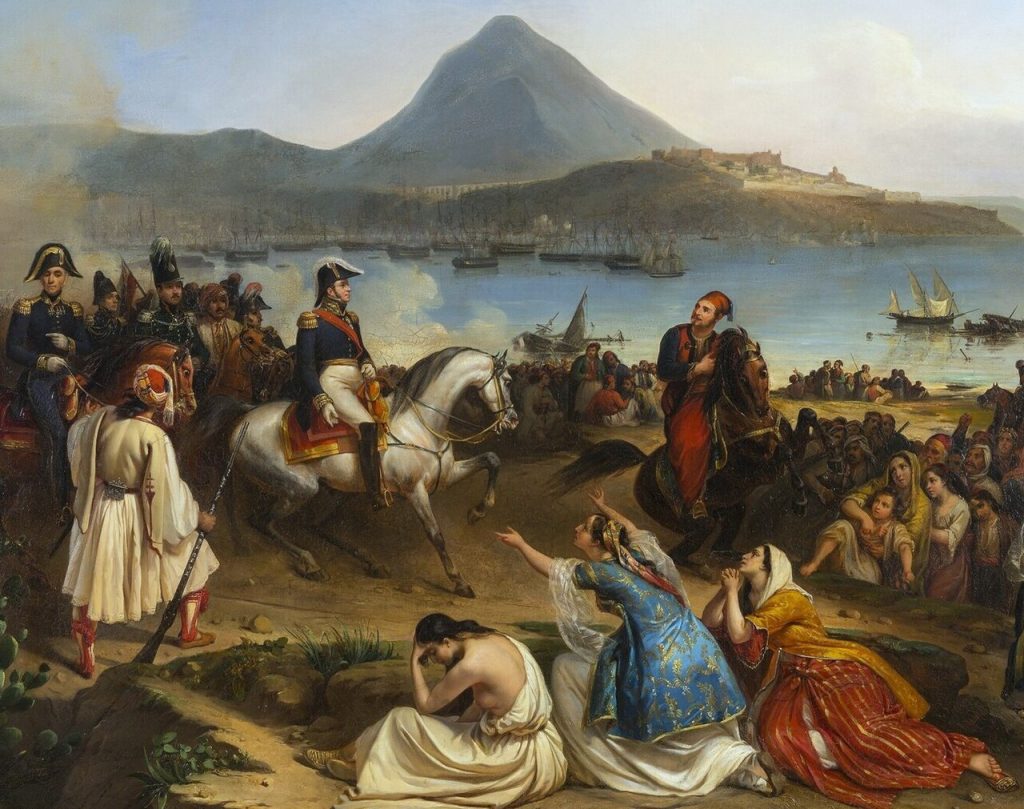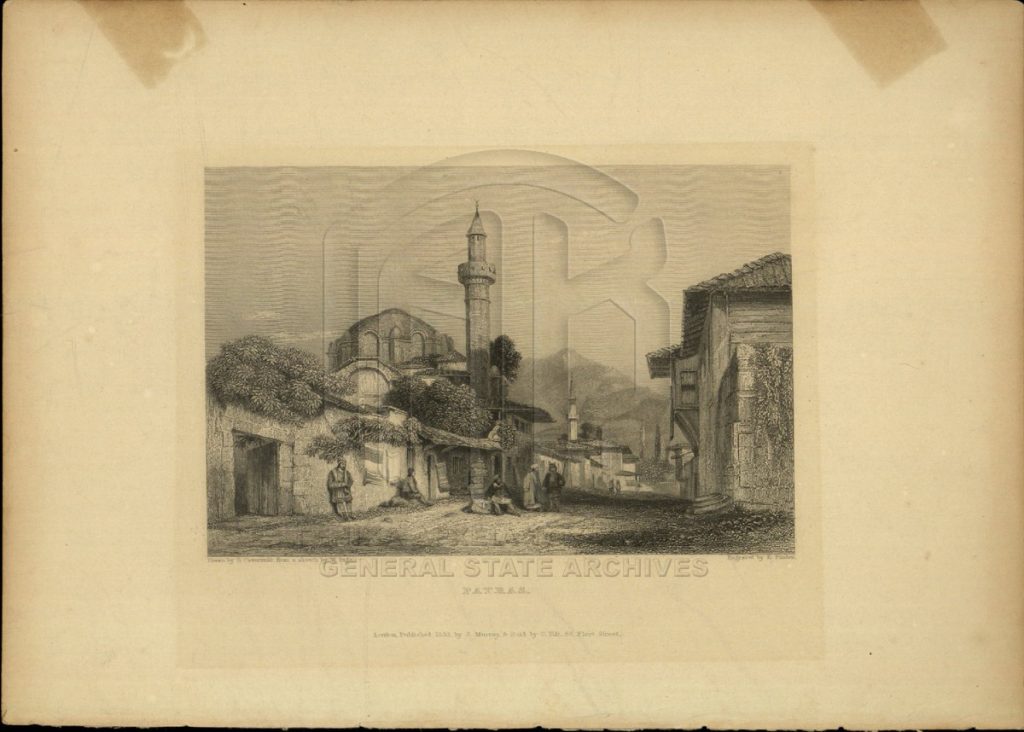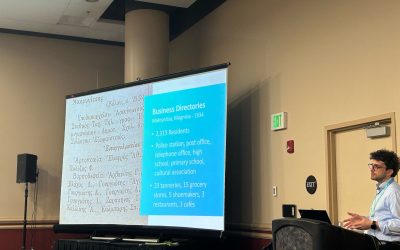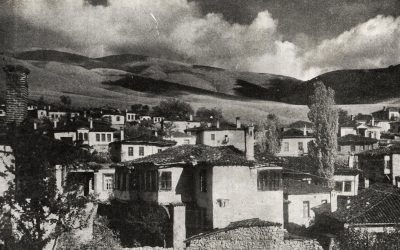Patras was one of the first cities to join the Revolution in 1821; however, it did not manage to get liberated until 1828. The Civil War of the revolutionaries (1823-1825) had interrupted the path to liberation, while Ibrahim Pasha, who arrived in 1825, had almost destroyed the entire Peloponnese, and the revolution had waned. In this context, the Great Powers (Britain, France, Russia) decided to send a military force to the Peloponnese. The third French division, led by French General Maison, arrived in Patras on October 3, 1828, and remained there until May 1829. A French soldier, Jacques Mangeart, was a member of the French Mission during which he contributed to the publication of a French newspaper. During his stay in the area, he kept a journal documenting his impressions, the habits of the locals, and the customs of the place.
This diary was ultimately published under the title “Souvenirs de la Morée” in 1830 in Paris. Recently, in 2019, the book was also published in a Greek translation titled “Memories from Patras (1828-1829) [Αναμνήσεις από τας Πάτρας].” In the wealth of information that the diary provides about the people and the city of Patras, there are also details about how the French soldier celebrated Christmas in 1828 away from Paris, in the newly liberated city.

By that time, the French had already adopted the Gregorian calendar, which differed by twelve days from the Julian calendar used by the Greeks. The governor of the Patras, wanting to express gratitude to the French army that had significantly contributed to the liberation of the city, declared the eve and day of Christmas as holidays based on the Gregorian calendar. On those two days, all shops remained closed except for cafes, taverns, and restaurants. This, according to Jacques’s notes, created a sense of familiarity among the French soldiers, even though they were miles away from their homeland.
When Christmas day dawned, a military ceremony took place with the presence of the commander of the Patras fortress, three colonels from the local authorities, and residents. After the military ceremony concluded, Maison’s daily order was read, and dancing and singing commenced. In Patras, as described by Mangeart, there were numerous cafés, and he chose to celebrate Christmas in one of them named “Kanakaris,” after the well-known family of Patras. At “Kanakaris” Jacques was happy to listen to Greek folk music and watch people dance.
The dance specifically caught his curiosity and impressed him. In his diary, Jacques describes in detail how the Greeks danced. They wore elaborate costumes and formed a semi-circle. The first dancer held a handkerchief, making gestures and movements, which, in Jacques’s words, “…sometimes resembled a lion and sometimes someone kneeling to his beloved.” The rest of the dancers followed without making any special poses. Then, the first person went to the end of the semicircle, and the second took over leading the dance.
On Christmas night, after an argument that arose in the café, the celebration continued at the house of a soldier from Mesolongi, and the Frenchman was impressed by the host’s warm welcome and hospitality. Initially, the group was greeted with a sweet made of oil, dough, and honey (apparently, “melomakarona“), and was offered cognac and Turkish coffee. The family of the Mesolongi soldier was very kind to the Frenchmen, grateful for the freedom of Greeks to which the French had greatly contributed.

As for New Year’s, Jacques simply mentioned that it was similar to Christmas without further descriptions. After a few days, it was the turn of the Greeks to celebrate Christmas and New Year’s according to their own calendar. Jacques did not say much about it, perhaps because the people of Patras celebrated just as they had a few days earlier. However, he was intrigued by the carols, and probably not in a positive way… He characterized the singers as disharmonious and discordant, leading him to give them some coins to leave quickly!
Those were the memories of Jacques Mangeart from Christmas in Patras in 1828, as he detailed them in his diary. The publication of this diary, both in its original French version and its Greek translation, has proved to be a treasure trove of historical and ethnographic information that is invaluable for the understanding of our homeland’s and families’ history.
About the Author
Sofia Pitsineli studied history at the University of Athens, Greece, and works as a research assistant at Greek Ancestry.



